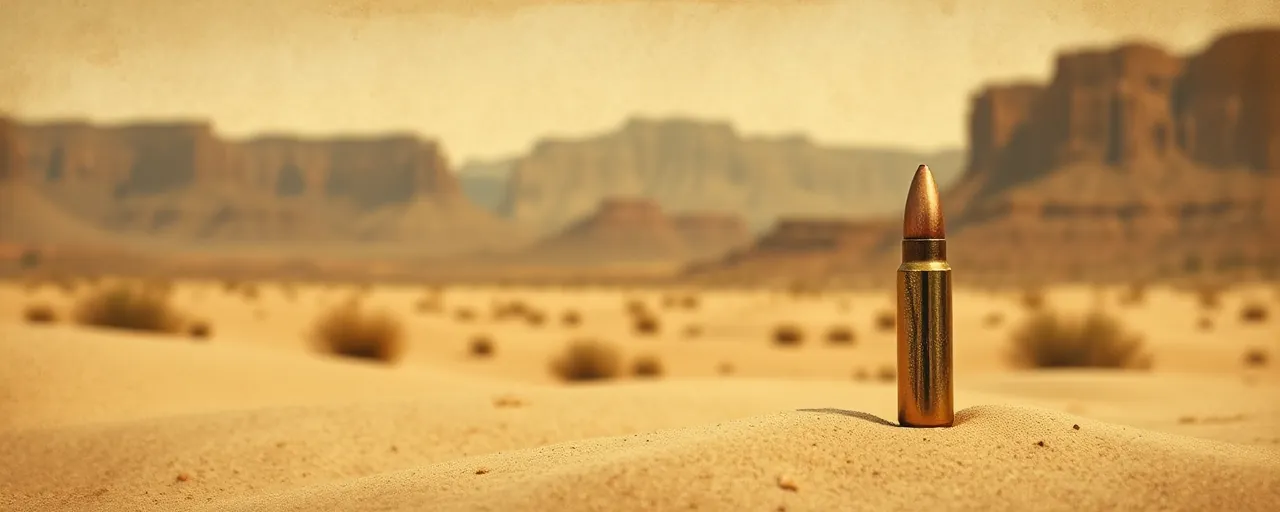The Night That Shattered a Community
On a September night in 2024, a rock thrown at a car window in Zuni Pueblo spiraled into a near-fatal shooting. Devin Wade Wyaco, enraged by the minor provocation, fired a handgun from his girlfriend’s vehicle, striking an unsuspecting cyclist in the abdomen. The victim, known only as John Doe, survived after emergency treatment, but the incident left an indelible scar on a tight-knit Native American community already battered by violence.
Wyaco, a 34-year-old enrolled member of the Zuni Pueblo with a rap sheet including cocaine distribution and fleeing police, confessed to the crime. Facing up to life in prison after pleading guilty to federal charges, his case exposes a festering wound in America: the deadly intersection of felons, firearms, and fragile communities. This isn’t just a story of one man’s rage; it’s a clarion call for action against a system that fails to protect the vulnerable.
For too long, the debate over gun control has been mired in abstract arguments about rights. But in Zuni, the stakes are visceral, immediate, and human. Wyaco’s bullet didn’t just pierce flesh; it tore through the fabric of a community where violent crime rates soar ten times higher than the national average. Enough is enough.
The Crisis We Can’t Ignore
Native American communities like Zuni Pueblo bear a disproportionate burden of violence. Homicide ranks among the top ten causes of death for Native women, while murder rates dwarf those of the broader population. The FBI’s Indian Country program, with over 4,300 open investigations as of early 2025, struggles to keep pace. Initiatives like Operation Not Forgotten have resolved over 500 cases, yet advocates argue that temporary task forces aren’t enough. Permanent resources, they insist, are essential to confront systemic failures—understaffed tribal police, jurisdictional tangles, and a lack of federal urgency.
Wyaco’s case underscores this grim reality. A felon barred for life from owning firearms under federal law, he still got his hands on a gun. His girlfriend’s home yielded the weapon, a stark reminder that enforcement gaps let dangerous individuals slip through the cracks. In New Mexico, where gun deaths spiked 32% between 2019 and 2023, the cost of this negligence is $6.2 billion annually, with children and teens suffering most acutely. Firearms are now their leading cause of death. How many more lives must be shattered before we act?
Contrast this with the tired rhetoric of gun rights advocates, who cling to Second Amendment absolutism. They argue that felons like Wyaco, if nonviolent in their past, deserve a chance to reclaim their rights. But when a rock triggers a shooting, that logic crumbles. Public safety demands stricter laws, not loopholes. Wyaco’s prior convictions—drug trafficking and evading law enforcement—scream danger, yet the system failed to disarm him until it was nearly too late.
New Mexico’s response offers a glimmer of hope. Senate Bill 253, passed in 2025, imposes a minimum nine-year sentence for felons caught with guns, twelve if their history includes serious violence. It’s a step toward accountability, aligning state penalties with federal statutes that can jail offenders for life. Yet, this patchwork approach highlights a broader failure: federal resources lag, leaving states to pick up the slack. Justice demands more.
Tribal police, vital partners in cases like Wyaco’s, deserve special praise. The Zuni Police Department, working with the FBI’s Gallup Resident Agency, pieced together the evidence that brought him down. Under agreements with the Bureau of Indian Affairs, tribal officers tackle major crimes despite stretched resources. Their role is a testament to resilience, but it’s also a cry for support. Without robust funding and training, their efforts risk being a bandage on a gaping wound.
A Path to Justice and Healing
Wyaco’s guilty plea—to assault, illegal firearm use, and felon-in-possession charges—carries a minimum ten-year sentence. It’s a start, but the fight doesn’t end in the courtroom. Real change requires dismantling the pipeline that arms felons and devastates communities. Gun buyback programs, behavioral health interventions, and tighter federal oversight could stem the tide of violence that claims 530 lives yearly in New Mexico alone.
History teaches us the cost of inaction. Over the past decade, firearm deaths in the state surged 71%, with homicides up 35%. Native women, 84.3% of whom face violence in their lifetimes, bear the brunt of this epidemic. Federal efforts like Savanna’s Act and Executive Order 14053 signal progress, but they’re mere stepping stones. Advocates for Indigenous justice demand a seismic shift: fully funded tribal law enforcement, streamlined jurisdiction, and an unrelenting crackdown on illegal guns.
Opponents will decry this as overreach, insisting that individual rights trump collective safety. Their stance rings hollow when a felon’s anger nearly ends a life over a thrown rock. The Founding Fathers didn’t enshrine chaos; they envisioned order. Today, that order demands bold, compassionate action to protect the marginalized—not coddle the reckless.
